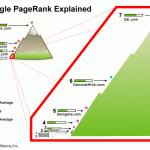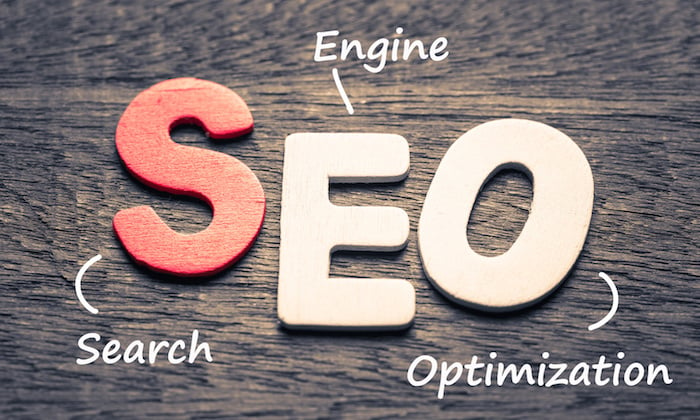Google recommends we 'qualify outbound links' using the link quality 'nofollow':.
Usage rel=" sponsored" or rel=" nofollow" for paid links.
Usage rel=" ugc" or rel=" nofollow" for user generated material links.
Usage nofollow on widgets, themes and infographic links.Don't utilize nofollow on every external link on your site.
Do not utilize nofollow on internal links.Link out generally to useful resources without utilizing nofollow.

When it concerns online search engine like Google, a link from one website to another site is a 'vote' for the website that has the link pointing to it (an example of a link that passes Pagerank).
Links assistance Google rank files online in its SERPs (Search Engine Outcomes Pages), and as such, have long been abused by link contractors. I utilized to be among these types of link contractors (prior to 2012 when Google launched the Google Penguin algorithm upgrade).

This guarantees the link will not count as a seo specialist vote or recommendation for another page nor will it pass Pagerank nor any other ranking signal.
Failure to add the Rel= Nofollow credit to paid links places your website in a 'link plan' and ultimately harms the credibility of your site, as far as Google's algorithms are worried.
Using the HTML attribute on an external (outgoing) link informs Google you do not vouch for this other web page enough to assist it's search rankings.
The characteristic also effectively 'insulates' your site versus any loss of 'reputation', as Google calls it, when you link out from your site. Google classifies paid or other-wise non-disclosed monetised links 'unnatural links'.
You can get a Google charge or manual action for abnormal links.
Example "Nofollow" Link Code.
Rel= nofollow is a quality you add to a link on a web page:.
Google would prefer all non-editorial links marked-up with the attribute rel=" sponsored" (or rel=" nofollow)" to avoid these kind of links passing Pagerank and affecting SERPs.This consists of:.
paid links.
news release.
advertorials.affiliate links and.
native advertising.
This is to separate such links from naturally earned backlinks-- the type of links Google aims to reward.
Arguments.
The questionable (for SEO) Rel= nofollow quality has actually been around since 2005 and is here to stay. Paid links without the quality are REALLY DANGEROUS to search engine rankings for your site. Naturally, with the attribute, the organic online search engine value of paid links is effectively neutralised.
There are a lot of individuals who argue about using the characteristic; when to utilize it, where to use it, if it can be used to sculpt link equity, how it affects Google PR and even precisely how Google handle a nofollowed link.
There's been observations and arguments ad nauseam that "nofollow links pass PR" or "that you can sculpt internal PageRank" or that Google's suggestions is deceptive or inaccurate. Note: I believe Google tells us a lot about what will adversely impact the efficiency of your site in Google-- it's all there in web designer videos, webmaster guidelines and the manual search evaluator quality rater standards.

As there frequently is, there has been confusion when it pertains to how Google deals with nofollow links.
I believe nofollow is as Google states-- efficiently a non-link when it concerns ranking your website. A minimum of-- it is suggested to be.
You can expect links with 'rel= nofollow' will not affect your search rankings in a favorable or unfavorable method in the traditional sense. Who knows if Google appreciates real users who visit your site by means of a real editorial nofollow link? They might.
Nofollow is device recognizable sponsorship disclosure to Googlebot so Google can handle it properly.
When it concerns paid advertising and sponsorship to back products, it is law in numerous countries you must disclose any paid marketing relationship anyway.
How does Google treat sites where all external links are no-follow?Among my clients was linking out to genuine and trusted sites from pages on his website and added rel= nofollow to the links since he believed this was helping his site. This is unneeded.
There's no reason to put the characteristic on editorially authorized links.
In my experience, if you compose a blog post and use the characteristic on all links on your blog for no other reason than to conserve Pagerank, or perhaps believe linking out to irrelevant sites will harm your website, you're disinformed at finest.
Google does not punish you for connecting to unimportant sites if both pages in concern are relevant to each other.
Use nofollow only if you don't want to guarantee the page you're linking to, for fear of losing track record OR if your site is made with "user created material".
I continue believing that Google might be taking in the quality or accuracy of your outbound links in some minor method to determine your track record, so don't miss out because you are successfully not linking to anyone.
Likewise, think about, the link you make might be the link that assists another REAL website get traffic from Google and please Google's users-- that's not a bad thing for anybody.
I have little reason for the attribute these days beyond user-generated remarks and affiliate links. I do not use it to shape Pagerank, and I don't use it in any arena where editorial moderation is in play.
I just use it for websites that don't be worthy of the link to be search engine friendly and in 99% of the cases, if I do not have any factor to trust a site, I won't make the link a link at all.
Animal hate-- websites where every outgoing link is nofollow.
Should I Apply Nofollow To My External Social Media Profile Links Like Twitter, Facebook and Linkedin?
NO.
Why would you after checking out the above. Do not you desire your social media profiles to rank in Google and be associated with your site? The nofollow attribute (we were told) 'evaporates' the Pagerank your page needs to 'donate' to other pages on the web and passes no potentially favorable 'signals' along to the other page.
Your site obtains no take advantage of using nofollow to social media profile links, and if you do apply the rel= nofollow attribute to such links, neither do your social media profiles.
Whatever you do is going to have a tiny impact by yourself site rankings, but connecting naturally might help your social media profiles enormously.
Keep nofollow for paid links, user-generated material and websites you do not trust for some reason.
Can Nofollow Hyperlinks Hurt You?
No.Unless you are spamming people silly and annoy the Google Web Spam group.
Should I Include Nofollow To My Widget or Infographic?
Should you use nofollow to widgets? It is advised.
NOTE-- You can also use robotics meta tags or X-Robots-Tag HTTP header to control how Google treats ALL the links on a page if you choose you really need that in particular circumstances.
You can likewise block real pages using robotic txt (or X robotics or meta tags) or block outbound links by means of redirect scripts if you are stressed over losing trust and reputation in Google and desire to prevent the nofollow attribute completely.
Should you use nofollow to infographics? "Consider" it.
As an aside, here's an infographic on "when and how to use" nofollow from Search Engine Land whose creator is now a Google spokesperson (who wrote about the issue of nofollow in 2009, to0).This infographic is consisted of without the nofollow characteristic and included on this page since it is actually beneficial and I want to reward the creator of it-- however that's reasonable disclosure, isn't it?:.